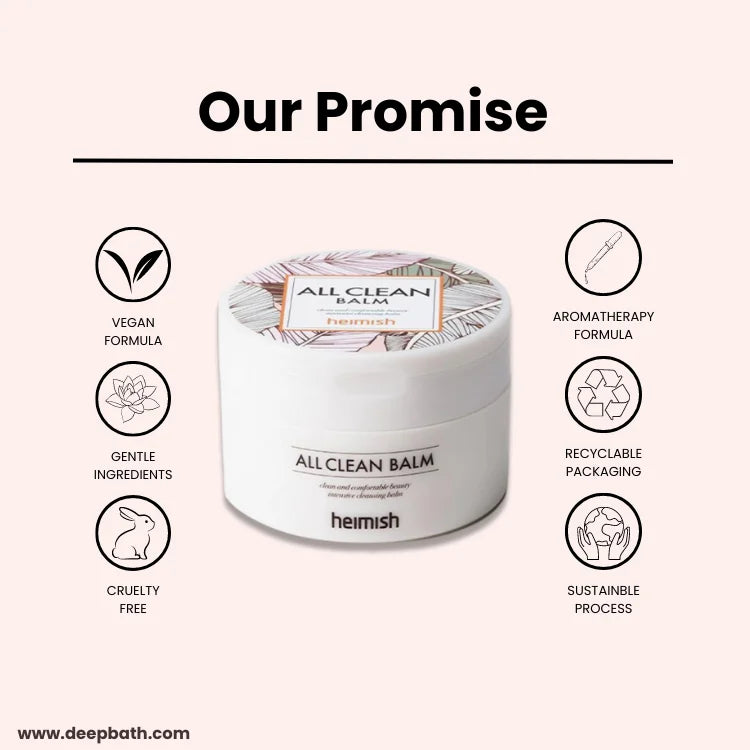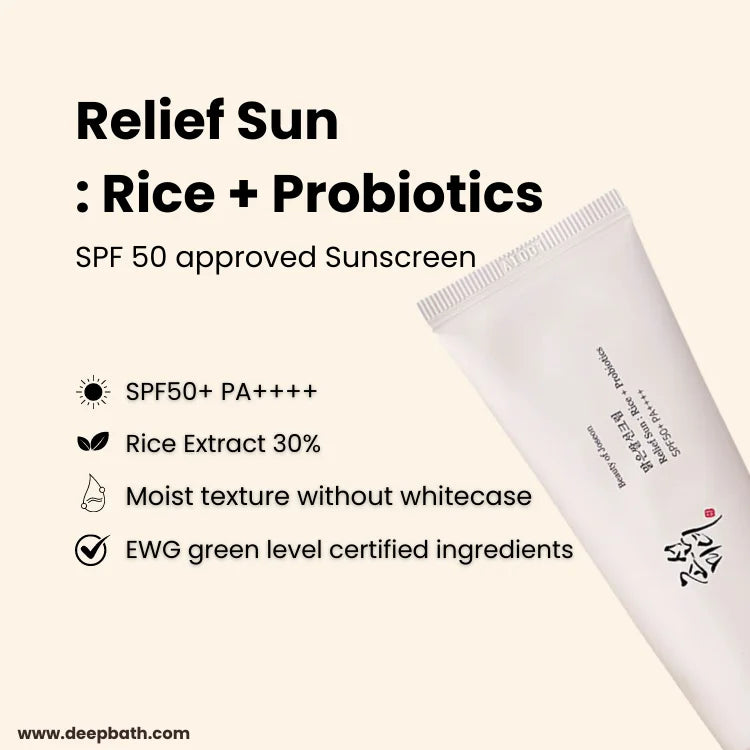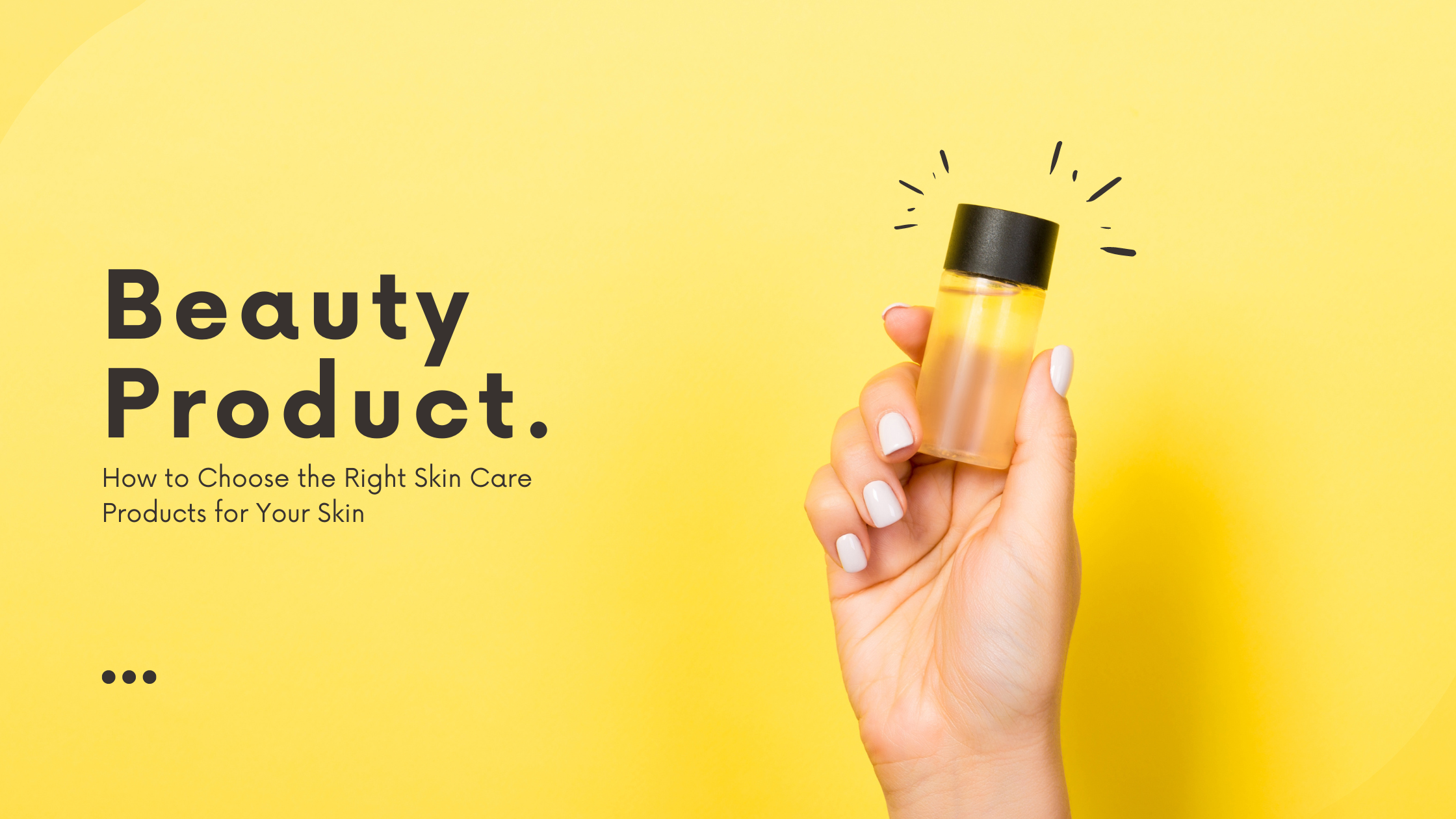Introduction
Glowing, healthy skin can often feel like a dream, especially with countless skincare products claiming to solve all your skin issues. But the truth is, there's no one-size-fits-all when it comes to skincare. The secret to achieving your skin goals lies in understanding your skin type, identifying your concerns, and choosing the right products that address these needs. This comprehensive guide will walk you through the process of selecting the perfect skincare products to allow your skin to look and feel its best!
Understanding Your Skin Type and Concerns
Before diving into the sea of skincare products, it's crucial to identify your skin type and understand its unique needs. Here's a quick guide to help you:
1. Dry Skin: If your skin often feels tight, rough, or flaky, you likely have dry skin. It needs products that provide deep hydration and lock in moisture.
2. Oily Skin: Is your skin often shiny, and does it tend to break out? You might have oily skin. Look for products that balance oil production and don't clog pores.
3. Acne-Prone Skin: Regular breakouts, blackheads, and whiteheads are signs of acne-prone skin. Aim for anti-acne products that exfoliate gently and soothe inflammation.
4. Sensitive Skin: If your skin gets easily irritated or red, you may have sensitive skin. Opt for hypoallergenic, fragrance-free products that calm and soothe.
5. Aging Skin: If you're concerned about wrinkles, fine lines, or loss of elasticity, focus on products with anti-aging ingredients like retinol and peptides.
6. Combination Skin: If some areas of your face (like your T-zone) are oily while others are dry, you have combination skin. Balance is key here – you need products that hydrate dry areas and control oil in others.
Remember, it's always a good idea to consult with a dermatologist if you're unsure about your skin type or if you have specific skin conditions.
Key Factors to Consider
Ingredients to Look for and Avoid
The ingredients list of a skincare product can make or break its effectiveness. Here are some ingredients to consider and avoid for different skin concerns:
1. For dry skin: Look for hydrating ingredients like hyaluronic acid, glycerin, and ceramides. Avoid harsh soaps and alcohol-based products.
2. For oily skin: Salicylic acid, niacinamide, and clay can help control oil. Steer clear of heavy oils and silicones.
3. For acne-prone skin: Salicylic acid, benzoyl peroxide, and tea tree oil are your best friends. Avoid comedogenic ingredients that can clog pores, like coconut oil.
4. For sensitive skin: Opt for soothing ingredients like aloe vera and chamomile. Avoid potential irritants like fragrances, dyes, and sulfates.
5. For aging skin: Retinol, peptides, and vitamin C can help address signs of aging. Avoid harsh physical exfoliants that can damage the skin.
Product Formulation and Consistency
Pay attention to the product's formulation. Creams are generally more moisturizing and better for dry skin. Gels and serums can be lighter and more suitable for oily or acne-prone skin. The consistency of a product can also affect how it feels on your skin and how well other products layer on top.
Choosing the Right Cleanser
Cleansing is the first step in any skincare routine. It removes dirt, oil, and makeup, prepping your skin for the rest of your regimen. Here are some tips to remember:
1. Dry or Sensitive Skin: Opt for creamy, hydrating cleansers that won't strip your skin of its natural oils.
2. Oily or Acne-Prone Skin: A gentle, foaming cleanser can help remove excess oil without drying out your skin.
3. Aging Skin: Consider a milky or oil-based cleanser to maintain your skin's hydration while washing away impurities.
Selecting the Perfect Moisturizer
A good moisturizer can keep your skin balanced, healthy, and glowing, no matter your skin type. Here are some guidelines:
1. Dry Skin: Look for a rich cream with ingredients like hyaluronic acid or shea butter to lock in moisture.
2. Oily Skin: A lightweight, oil-free moisturizer or gel can provide hydration without feeling heavy or clogging pores.
3. Acne-Prone Skin: Non-comedogenic (won't clog pores) and oil-free moisturizers are your best bet.
4. Sensitive Skin: Hypoallergenic and fragrance-free moisturizers can minimize risk of irritation.
5. Aging Skin: Focus on moisturizers packed with anti-aging ingredients like retinol, peptides, and hyaluronic acid.

Targeting Skin Issues with Specialty Products
Anti-Aging Products
For mature skin, retinol, peptides, and antioxidants can be beneficial. They can help reduce wrinkles, improve elasticity, and brighten skin tone. Remember to introduce these products gradually and always wear sunscreen during the day, as some can increase sun sensitivity.
Acne Treatments
For acne-prone skin, products with salicylic acid, benzoyl peroxide, or sulfur can be effective. They can reduce inflammation, treat existing breakouts, and prevent new ones from forming.
Sunscreens
Regardless of your skin type, daily sun protection is a must. Choose a broad-spectrum sunscreen with an SPF of at least 30. Those with sensitive skin may prefer mineral sunscreens, while others might prefer chemical sunscreens for their lightweight feel.

Finding the Right Brands
Choosing the right brand can also play a big role in your skincare journey. Here are three brands that stand out for their quality and effectiveness for different skin concerns:
1. COSRX: Known for its clean formulations and effective acne solutions.
2. Some By Mi: Offers a range of products targeting common skin issues like acne and hyperpigmentation.
3. Mary&May: Known for its gentle, eco-friendly products suitable for sensitive skin.
Remember, expensive doesn't always mean better. The key is to find a brand that aligns with your skincare needs, values, and budget.
Conclusion
Choosing the right skincare products may seem overwhelming, but with a little knowledge and understanding of your skin, it can become an enjoyable process. Remember, everyone's skin is unique, and what works for one person might not work for another. Don't be afraid to experiment and find what works best for you. Always listen to your skin – it knows what it needs. Happy skincare shopping! n
